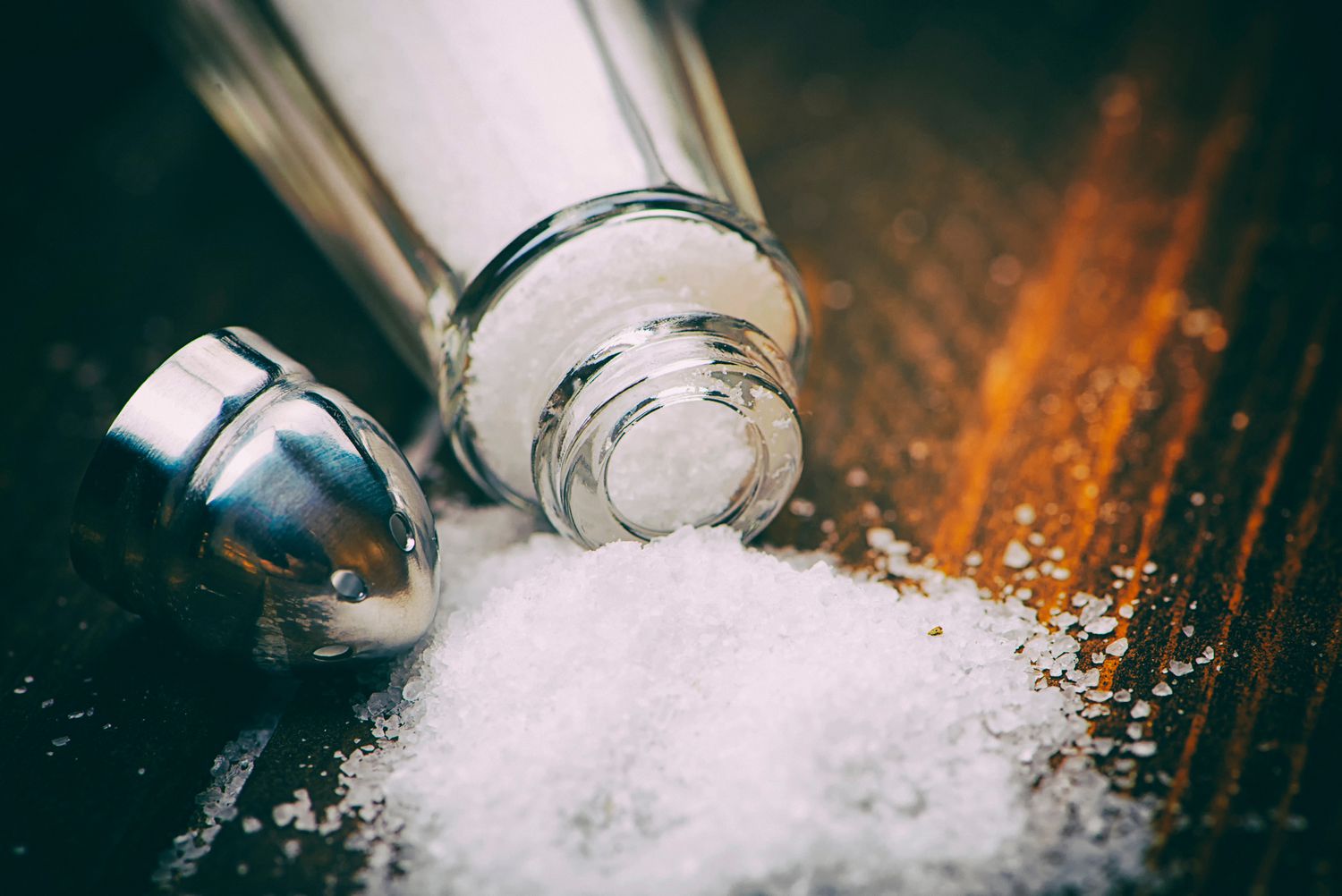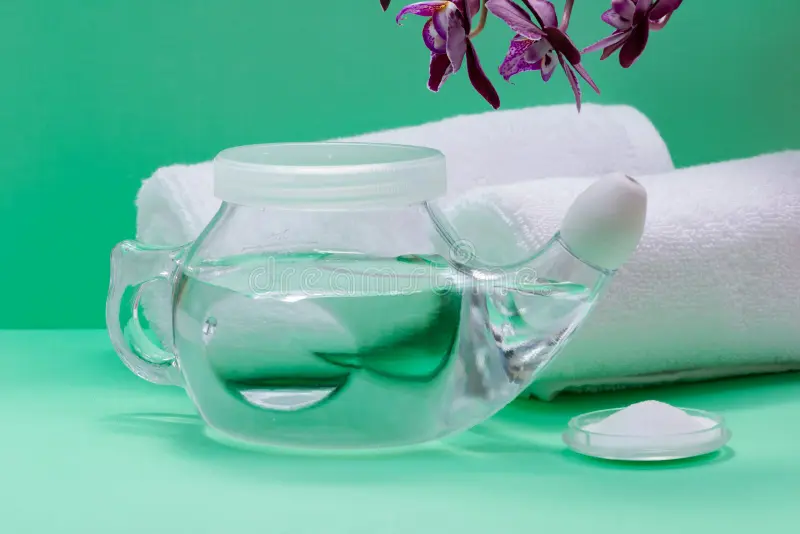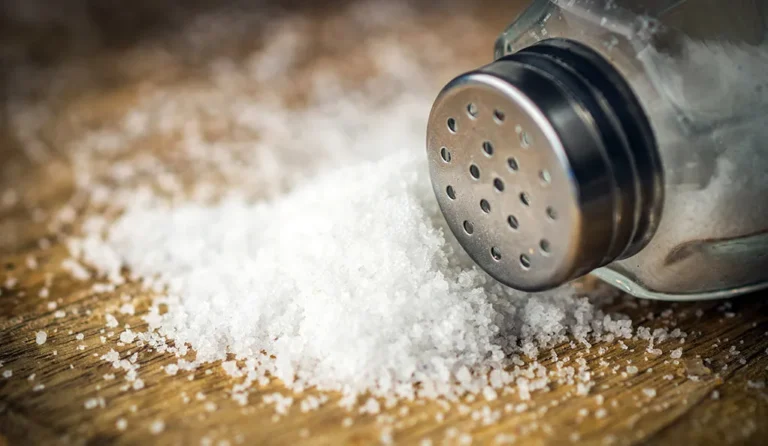No, it is not recommended to use table salt for piercings. Table salt often contains additives like iodine and anti-caking agents, which can be harsh and irritating to the skin. Moreover, table salt may not be sterile, increasing the risk of introducing bacteria or other contaminants to the piercing site, which could lead to infections or complications.
If you’re looking to clean a piercing, it’s better to use a saline solution made specifically for piercings or one that’s created by mixing non-iodized sea salt with warm distilled water. This solution can help cleanse the piercing without causing irritation or harm. It’s essential to follow the aftercare instructions provided by your piercer to ensure proper healing and to minimize the risk of infection. If you have concerns or notice any signs of infection or unusual reactions, it’s best to consult with a healthcare professional or your piercer for advice.
What are the risks of using table salt for piercings?

Table salt, chemically known as sodium chloride (NaCl), is a crystalline compound primarily composed of sodium and chlorine ions. It’s a commonly used seasoning and food preservative. In its pure form, sodium chloride is a white, crystalline substance that dissolves in water.
Additives commonly found in table salt (iodine, anti-caking agents)
- Iodine: Some table salts are fortified with iodine, an essential nutrient crucial for thyroid function and overall health. While iodine fortification is beneficial in reducing iodine deficiency, it may not be suitable for piercing aftercare. Iodine can be harsh and may cause irritation or adverse reactions when applied to a healing piercing.
- Anti-caking agents: Manufacturers often add anti-caking agents to prevent salt particles from clumping together. These agents, such as calcium silicate or sodium aluminosilicate, maintain the free-flowing nature of table salt. However, these additives might not be sterile and can introduce foreign substances that are not ideal for piercing healing.
Potential impact of additives on piercing healing
- Irritation and adverse reactions: Additives like iodine or anti-caking agents can be harsh on the delicate skin around a piercing. They might cause irritation, redness, or allergic reactions, hindering the healing process.
- Lack of sterility: Table salt, with its additives, may not be sterile. When used for piercing aftercare, non-sterile substances can introduce bacteria or contaminants to the piercing site, increasing the risk of infections and complications.
- Delayed healing or complications: The presence of additives in table salt may interfere with the body’s natural healing process for a piercing. This interference could potentially lead to prolonged healing times or complications like infections, hypertrophic scarring, or keloids.
How to create an effective saline solution for piercing aftercare?

Using table salt for piercing aftercare poses several risks due to its potential to irritate the skin, lack of sterility, increased susceptibility to infections, and the possibility of triggering allergic reactions.
Irritation and harshness to the skin
Table salt, especially when it contains additives like iodine or anti-caking agents, can be abrasive and irritating to the delicate skin surrounding a healing piercing. The abrasive nature of these additives can cause redness, inflammation, discomfort, and even pain at the piercing site. Continuous exposure to such harsh substances can slow down the healing process by aggravating the skin around the piercing, making it more susceptible to irritation.
Lack of sterility in table salt
Unlike specialized saline solutions designed for piercing aftercare, table salt and its additives may not be sterile. Sterility is crucial in wound care, especially for piercings, to prevent the introduction of bacteria or other pathogens. Non-sterile substances increase the risk of contamination, leading to infections that can significantly impede the healing of the piercing.
Increased risk of infection and complications
Using non-sterile table salt on a piercing heightens the risk of infections. Any microorganisms or contaminants present in the salt or on the skin can infiltrate the open wound of the piercing, potentially causing infections. Infections can manifest as increased redness, swelling, pus discharge, warmth, and intense pain at the piercing site. If left untreated, infections can lead to more severe complications and may even require medical intervention.
Possible allergic reactions or adverse effects on healing
Some individuals might have allergic reactions to the additives commonly found in table salt, such as iodine or anti-caking agents. Allergic responses can vary from mild itching and irritation to severe swelling, rashes, or blistering around the piercing. These reactions can not only hinder the healing process but also create discomfort and complications that may require medical attention.
FAQ’s
What kind of salt is safe for piercings?
Non-iodized sea salt is safe for piercings as it lacks additives that might irritate the skin.
Can I clean my piercing with just water?
Using just water isn’t sufficient for proper piercing care; a saline solution specifically formulated for piercings is recommended.
Can I use table salt instead of sea salt for piercings?
It’s not advisable. Table salt often contains additives and isn’t as pure as non-iodized sea salt, which is safer for piercings.
Is table salt iodized?
Yes, most table salts are iodized, meaning they have added iodine for dietary supplementation.
What can I use instead of iodized salt?
Non-iodized salts like non-iodized sea salt or kosher salt can be used as alternatives.
Can I use non-iodized salt for a saline solution?
Yes, non-iodized salt, especially non-iodized sea salt, is suitable for creating a saline solution for piercing aftercare.
Final Words
In conclusion, using table salt for piercings can be risky. Table salt contains additives that might irritate the skin, isn’t sterile, and can increase the chances of infections or allergic reactions. It’s better to avoid using table salt for piercings and instead use saline solutions made for caring for piercings. These solutions are safer, sterile, and help in the healing process. Following the advice of a professional piercer and using the right products can make sure your piercing heals properly and without complications.

